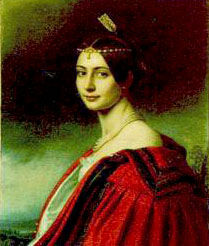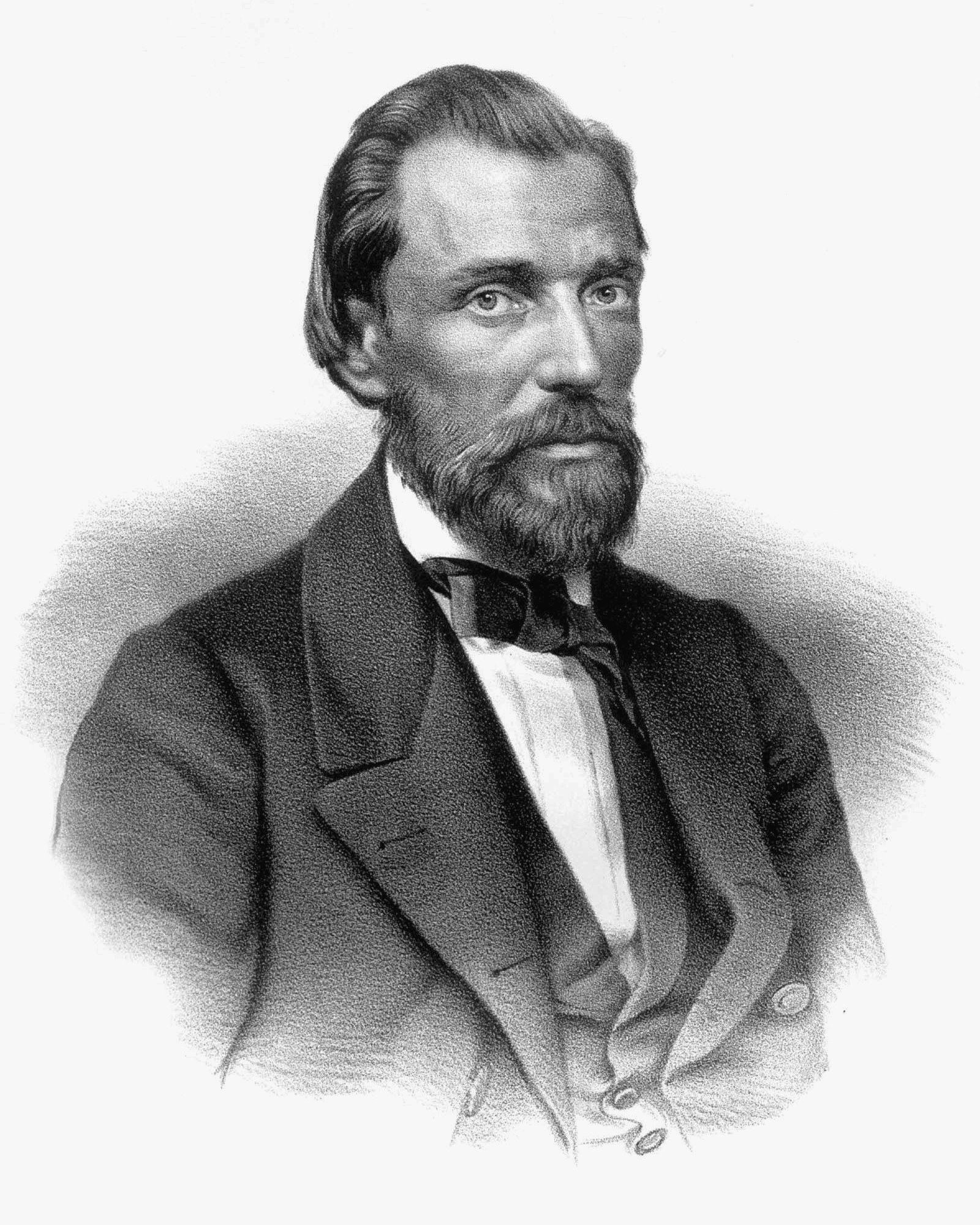|
Russkaya Beseda
''Russkaya Beseda'' (russian: Ру′сская бесе′да, en, The Russian Colloquy) was a Russian literary magazine founded in Moscow, Russian Empire, in 1856 by Alexander Koshelev who remained its editor-in-chief until 1858, when Ivan Aksakov joined in as co-editor. The magazine was published on a bi-monthly basis and was belonged to the Slavophile movement; most prominent in it were the literature, science and criticism sections. ''Selskoye Blagoustroistvo'' (Agrarian landscaping) was added as a supplement in 1858–1859. ''Russkaya Beseda'' targeted for broad and mixed readership and but, frequently covered articles about the future of the Slavic peoples. Among the authors who regularly contributed to the magazine, were Sergei Aksakov, Vladimir Dal, Aleksey K. Tolstoy, Alexander Ostrovsky, Aleksey Khomyakov, Fyodor Tyutchev, Ivan Nikitin, Taras Shevchenko Taras Hryhorovych Shevchenko ( uk, Тарас Григорович Шевченко , pronounced without ... [...More Info...] [...Related Items...] OR: [Wikipedia] [Google] [Baidu] |
Ivan Aksakov
Ivan Sergeyevich Aksakov (russian: Ива́н Серге́евич Акса́ков; , village Nadezhdino, Belebeyevsky Uyezd, Orenburg Governorate – , Moscow) was a Russian littérateur and notable Slavophile. Biography Aksakov was born in the village of Nadezhdino (then Orenburg Governorate, now Bashkiria), into a family of prominent Russian writer Sergey Timofeevich Aksakov (1791—1859) and his wife Olga Semyonovna Zaplatina (1793—1878). His mother was the daughter of Major General Semyon Grigorievich Zaplatina and a captured Turkish woman. The third son of eleven children,The Aksakovs The Arzamas Branch. Brief Biographies of the famous Aksakovs. he was a younger brother of the writers Konstatin and |
Fyodor Tyutchev
Fyodor Ivanovich Tyutchev ( rus, Фёдор Ива́нович Тю́тчев, r=Fyódor Ivánovič Tyútčev, links=1, p=ˈfʲɵdər ɪˈvanəvʲɪt͡ɕ ˈtʲʉt͡ɕːɪf; Pre-Reform orthography: ; – ) was a Russian poet and diplomat. Life Tyutchev was born into a Russian noble family in the Ovstug family estate near Bryansk (modern-day Zhukovsky District, Bryansk Oblast of Russia). His father Ivan Nikolaevich Tyutchev (1768—1846) was a court councillor who served in the Kremlin Expedition that managed all building and restoration works of Moscow palaces. One of Ivan's sister (1774—1837), was a hegumenia famous for founding the Borisoglebsky Anosin Women's Monastery.'' Ivan Aksakov (1997)''. Fyodor Ivanovich Tyutchev's Biography. — Moscow: AO Book and Business, p. 172-173 ''Gennady Chagin (2004)''. Fyodor Ivanovich Tyutchev. — Moscow: Russkiy mir, p. 17 The Tyutchevs traced their roots to Zakhariy Tutchev mentioned in ''The Tale of the Rout of Mamai'', a 1 ... [...More Info...] [...Related Items...] OR: [Wikipedia] [Google] [Baidu] |
Russian-language Magazines
Russian (russian: русский язык, russkij jazyk, link=no, ) is an East Slavic language mainly spoken in Russia. It is the native language of the Russians, and belongs to the Indo-European language family. It is one of four living East Slavic languages, and is also a part of the larger Balto-Slavic languages. Besides Russia itself, Russian is an official language in Belarus, Kazakhstan, and Kyrgyzstan, and is used widely as a lingua franca throughout Ukraine, the Caucasus, Central Asia, and to some extent in the Baltic states. It was the ''de facto'' language of the former Soviet Union, Constitution and Fundamental Law of the Union of Soviet Socialist Republics, 1977: Section II, Chapter 6, Article 36 and continues to be used in public life with varying proficiency in all of the post-Soviet states. Russian has over 258 million total speakers worldwide. It is the most spoken Slavic language, and the most spoken native language in Europe, as well as the most geographica ... [...More Info...] [...Related Items...] OR: [Wikipedia] [Google] [Baidu] |
Magazines Published In Moscow
A magazine is a periodical publication, generally published on a regular schedule (often weekly or monthly), containing a variety of content. They are generally financed by advertising, purchase price, prepaid subscriptions, or by a combination of the three. Definition In the technical sense a ''journal'' has continuous pagination throughout a volume. Thus ''Business Week'', which starts each issue anew with page one, is a magazine, but the '' Journal of Business Communication'', which continues the same sequence of pagination throughout the coterminous year, is a journal. Some professional or trade publications are also peer-reviewed, for example the '' Journal of Accountancy''. Non-peer-reviewed academic or professional publications are generally ''professional magazines''. That a publication calls itself a ''journal'' does not make it a journal in the technical sense; ''The Wall Street Journal'' is actually a newspaper. Etymology The word "magazine" derives from Arabic , th ... [...More Info...] [...Related Items...] OR: [Wikipedia] [Google] [Baidu] |
Magazines Disestablished In 1860
A magazine is a periodical publication, generally published on a regular schedule (often weekly or monthly), containing a variety of content. They are generally financed by advertising, purchase price, prepaid subscriptions, or by a combination of the three. Definition In the technical sense a ''journal'' has continuous pagination throughout a volume. Thus '' Business Week'', which starts each issue anew with page one, is a magazine, but the '' Journal of Business Communication'', which continues the same sequence of pagination throughout the coterminous year, is a journal. Some professional or trade publications are also peer-reviewed, for example the '' Journal of Accountancy''. Non-peer-reviewed academic or professional publications are generally ''professional magazines''. That a publication calls itself a ''journal'' does not make it a journal in the technical sense; ''The Wall Street Journal'' is actually a newspaper. Etymology The word "magazine" derives from Arabic ... [...More Info...] [...Related Items...] OR: [Wikipedia] [Google] [Baidu] |
Magazines Established In 1856
A magazine is a periodical publication, generally published on a regular schedule (often weekly or monthly), containing a variety of content. They are generally financed by advertising, purchase price, prepaid subscriptions, or by a combination of the three. Definition In the technical sense a ''journal'' has continuous pagination throughout a volume. Thus ''Business Week'', which starts each issue anew with page one, is a magazine, but the '' Journal of Business Communication'', which continues the same sequence of pagination throughout the coterminous year, is a journal. Some professional or trade publications are also peer-reviewed, for example the '' Journal of Accountancy''. Non-peer-reviewed academic or professional publications are generally ''professional magazines''. That a publication calls itself a ''journal'' does not make it a journal in the technical sense; ''The Wall Street Journal'' is actually a newspaper. Etymology The word "magazine" derives from Arabic , th ... [...More Info...] [...Related Items...] OR: [Wikipedia] [Google] [Baidu] |
Defunct Magazines Published In Russia
{{Disambiguation ...
Defunct (no longer in use or active) may refer to: * ''Defunct'' (video game), 2014 * Zombie process or defunct process, in Unix-like operating systems See also * * :Former entities * End-of-life product * Obsolescence Obsolescence is the state of being which occurs when an object, service, or practice is no longer maintained or required even though it may still be in good working order. It usually happens when something that is more efficient or less risky r ... [...More Info...] [...Related Items...] OR: [Wikipedia] [Google] [Baidu] |
Defunct Literary Magazines Published In Europe
{{Disambiguation ...
Defunct (no longer in use or active) may refer to: * ''Defunct'' (video game), 2014 * Zombie process or defunct process, in Unix-like operating systems See also * * :Former entities * End-of-life product * Obsolescence Obsolescence is the state of being which occurs when an object, service, or practice is no longer maintained or required even though it may still be in good working order. It usually happens when something that is more efficient or less risky r ... [...More Info...] [...Related Items...] OR: [Wikipedia] [Google] [Baidu] |
Taras Shevchenko
Taras Hryhorovych Shevchenko ( uk, Тарас Григорович Шевченко , pronounced without the middle name; – ), also known as Kobzar Taras, or simply Kobzar (a kobzar is a bard in Ukrainian culture), was a Ukraine, Ukrainian poet, writer, artist, public and political figure, folklore, folklorist and ethnography, ethnographer.Taras Shevchenko in the Great Soviet Encyclopedia, 3rd Edition. 1970-1979 (in English) His literary heritage is regarded to be the foundation of modern Ukrainian literature and, to a large extent, the modern Ukrainian language, though this is different from the language of his poems. He also wrote some works in Russian (nine novellas, a diary, and an autobiography). Shevchenko is also known for his many masterpieces as a painter and an illustrator. [...More Info...] [...Related Items...] OR: [Wikipedia] [Google] [Baidu] |
Ivan Nikitin (poet)
Ivan Savvich Nikitin (russian: Ива́н Са́ввич Ники́тин) (, Voronezh – , Voronezh) was a Russian poet. Born in Voronezh into a merchant family, Nikitin was educated in a seminary until 1843. His father's violence and alcoholism brought the family to ruin and forced young Ivan to provide for the household by becoming an innkeeper. After his first publications, he joined a circle of local intelligentsia that included his future biographer (and the editor of his collected works) Mikhail De-Poulet. He taught himself French and German and read widely in world literature, and in 1859 he opened a bookstore and library that became an important center of literary and social life in Voronezh. His first poems appeared in 1849 and his first collection in 1856; his 1858 poem "Kulak" was his most successful with both critics and the public. A second collection came out in 1859, and a prose "Seminarist's Diary" was published in 1861. Some of his poems became the basis for pop ... [...More Info...] [...Related Items...] OR: [Wikipedia] [Google] [Baidu] |
Aleksey Khomyakov
Aleksey Stepanovich Khomyakov (russian: Алексе́й Степа́нович Хомяко́в; May 13 ( O.S. May 1) 1804, Moscow – October 5 (O.S. September 23), 1860, Moscow) was a Russian theologian, philosopher, poet and amateur artist. He co-founded the Slavophile movement along with Ivan Kireyevsky, and he became one of its most distinguished theoreticians. His son Nikolay Khomyakov was a speaker of the State Duma. Biography Khomyakov's whole life was centred on Moscow. He viewed this "thousand-domed city" as the epitome of the Russian way of life. Equally successful as a landlord and conversationalist, he published very little during his lifetime. His writings, printed posthumously by his friends and disciples, exerted a profound influence on the Russian Orthodox Church and Russian lay philosophers, such as Fyodor Dostoyevsky, Konstantin Pobedonostsev, and Vladimir Solovyov. For Khomyakov, socialism and capitalism were equally repugnant offspring of Western deca ... [...More Info...] [...Related Items...] OR: [Wikipedia] [Google] [Baidu] |
Moscow
Moscow ( , US chiefly ; rus, links=no, Москва, r=Moskva, p=mɐskˈva, a=Москва.ogg) is the capital and largest city of Russia. The city stands on the Moskva River in Central Russia, with a population estimated at 13.0 million residents within the city limits, over 17 million residents in the urban area, and over 21.5 million residents in the metropolitan area. The city covers an area of , while the urban area covers , and the metropolitan area covers over . Moscow is among the world's largest cities; being the most populous city entirely in Europe, the largest urban and metropolitan area in Europe, and the largest city by land area on the European continent. First documented in 1147, Moscow grew to become a prosperous and powerful city that served as the capital of the Grand Duchy that bears its name. When the Grand Duchy of Moscow evolved into the Tsardom of Russia, Moscow remained the political and economic center for most of the Tsardom's history. When th ... [...More Info...] [...Related Items...] OR: [Wikipedia] [Google] [Baidu] |






